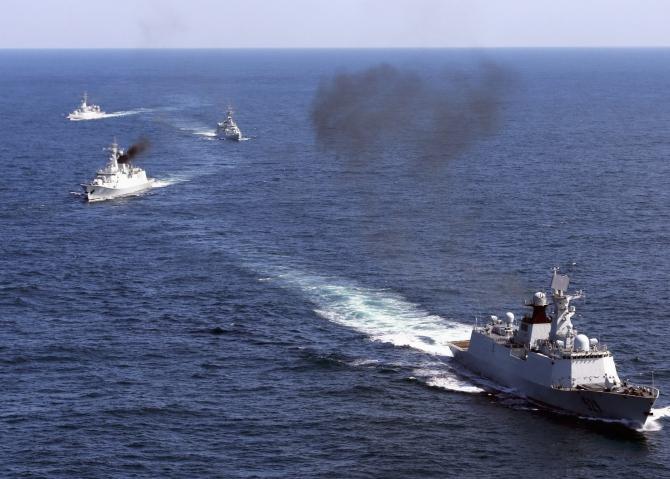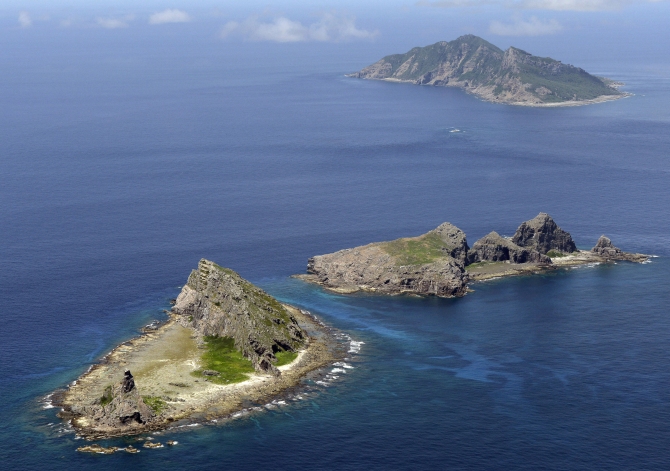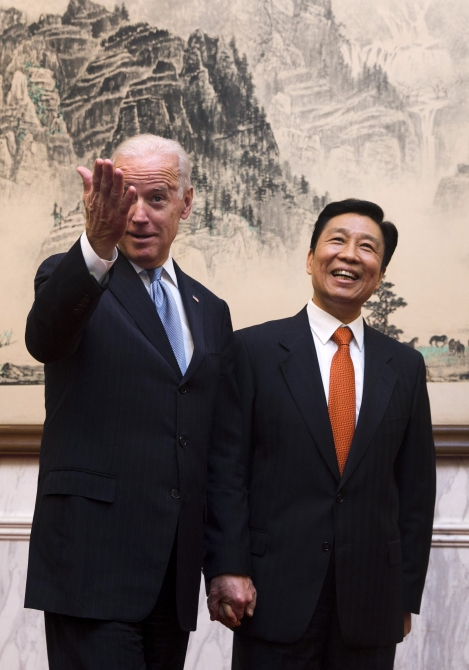
Declaration by China of a new overlapping Air Defence Identification Zone over contested islands of Diaoyu/Senkaku besides raising tensions between Tokyo and Beijing have caused reverberations in the strategic firmament of the entire Asia-Pacific region.
While the new ADIZ may not have conferred any sovereignty rights over the disputed islands, it was surely an innovative way by China of advancing its claims. It also needs to be noticed that Japan had also been at work in a similar way when it announced its ADIZ in 1967.
However, what is of interest to China’s neighbours -- both across the land and maritime borders -- is how China would behave as it continues to rise. Does it really believe in a peaceful rise and harmonious neighbourhood or is it merely a slogan?
As China spends more and more on military in order to reach some kind of parity with the United States in the long term, would it disregard the interests of its weaker and not so weak neighbours in order to realise its ‘core interests’?
The problem for India or for that matter other countries affected by China’s assertive policies are how to respond to such policies.
What is of concern to India is the possibility of an ADIZ being declared over the contested Sino-Indian borders. Though sometime ago, the spokesman of China’s ministry of foreign affairs had clarified that such ADIZ was only applicable to littoral -- i.e. coastal areas -- but then this may not be absolutely correct as ADIZ are established both over land and sea.
Courtesy: Vivekananda International Foundation
...

In the announcement of such an ADIZ over Diaoyu/Senkaku islands many strategic messages are being discerned. One message is that US will not be a reliable strategic partner or ally as it would be keener to protect its own interests and therefore would not be willing to help fully its ally or partner if push comes to a shove.
American economy has become so much interwoven with the Chinese economy that it may be reluctant to enter into a hot conflict with China despite its much touted rebalance strategy or pivot to Asia and its practice of air sea battle concept.
The fact that US Vice-President Joe Biden during his visit to Beijing post declaration of the new ADIZ did not call on China to reverse the same is also being viewed with consternation by Japan and South Korea.
A second message emanating from China to its neighbours is that your interests are better served by economically and strategically engaging with China rather than with a distant power such as the US whose economic and military power is in decline.
The above policy of China is also being seen in line with the Sun Tzu’s dictum of best strategy being to attack an adversary’s plan and alliances rather than get into a military conflict with him.
Declaration of the ADIZ is also being viewed as part of China’s anti-access and area denial strategy to thwart the strategies of America and its allies on the Asia-Pacific board.
...

What could be India’s response if such a zone is declared by China over the disputed areas? Evidently, India is unlikely to accept such an ADIZ and the potential for risk and unintended incidents in the air space would increase.
India has been in favour of status quo despite China having increased the number of incursions/transgressions along the Line of Actual Control and especially so in the Ladakh Sector. Over the years, China has also been able to increase the number of disputed areas in Ladakh sector.
However, declaration of ADIZ over the disputed border areas, if and when declared, would only be one manifestation of the larger problem of as to how should India respond to China’s rise and its attempts to dictate a new strategic discourse.
The Indian predicament is how to deal with such a situation. Does it join the US in some sort of ‘concert of democracies’ or does it cooperate-engage Beijing in the medium term? Or for that matter does it accept a China dominated Asian order?
India has long cherished its aspiration of achieving strategic autonomy; in the medium term it is unlikely to bandwagon with the US though and is more likely to continue to pursue a policy that supports its national interests.
Similarly, India will not be disposed towards accepting a China led order in Asia; even countries such as Japan, Vietnam or for that matter Indonesia could be unwilling to accede to such an arrangement despite compelling economic logic and pressures.
...

There is also a possibility of US and China coming to some sort of understanding to share power or divide areas of influence which may create more complexities. Possibilities of G2 or a condominium has been talked about (for instance during Obama’s visit to Beijing in 2009, the Joint Statement mentioned a joint US-China role in South Asia) earlier but India remains uncomfortable with such ideas.
India is also unlikely to favour any policy that puts itself in a conflict situation. In any case India is more inclined towards internal balancing, that is, strengthening its national capabilities rather than depend upon external balancing through forming alliances with other powers.
However, according to one estimate, the differential of combat power between China and India is in the ratio of 3:1. It would be only by the end of India’s 14th Five Year Defence Plan (2022-2027) that the huge gap in the combat power would likely be reduced to a manageable level of 1.5:1.
But for this to happen, the Indian economy has to do well in the coming years and recover from its current decline.
Finally, as the recent events in South China Sea and East China Sea have shown, the strategic environment in the region is increasingly becoming volatile and risk prone as the rising power moves towards changing the status quo and as the existing power architecture responds to the same.
China’s new ADIZ is only a symptom of the larger strategic changes under way in the Asia Pacific. Strengthening multi lateral security architecture in the Asia Pacific and reduction of dissonance through a negotiated process would pay dividends in the long run.